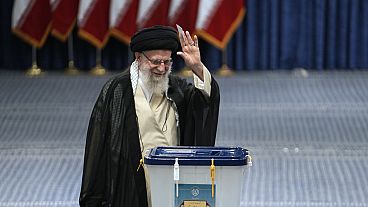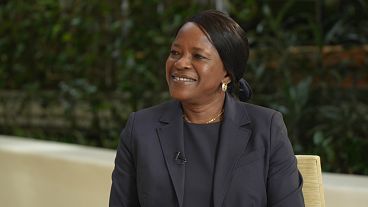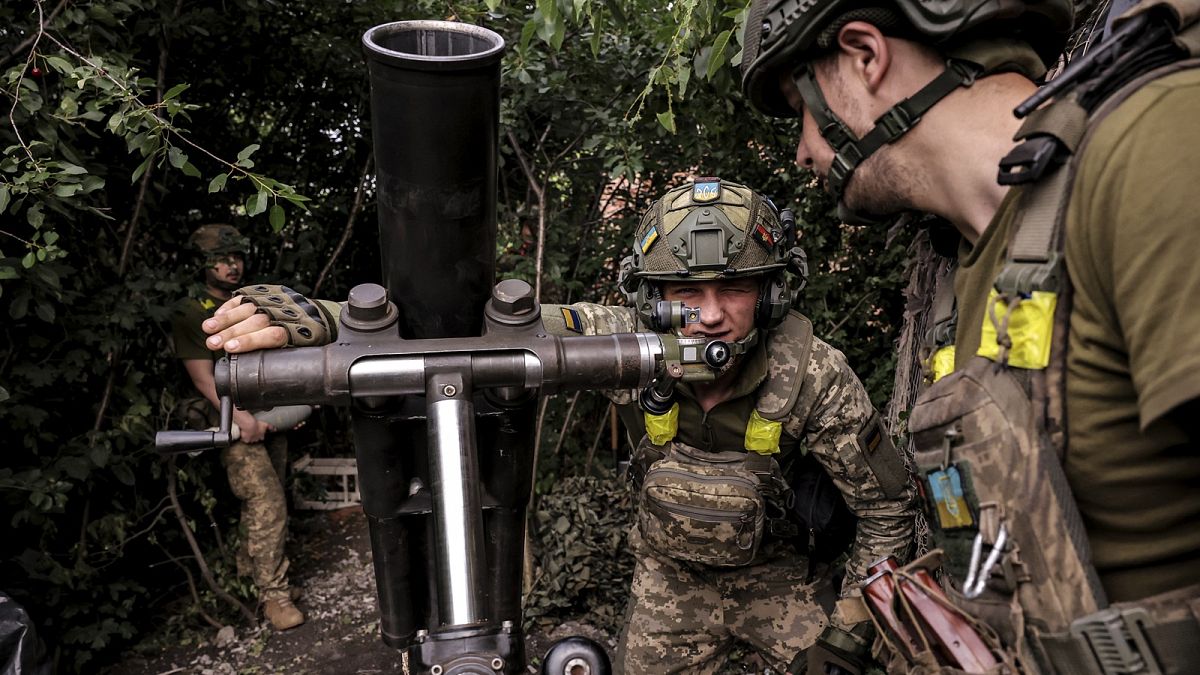Western allies have vowed to provide Kyiv with the extraordinary revenues earned from Russia's immobilised assets.
The European Union will soon send €1.4 billion in weaponry and industrial aid to Ukraine after foreign affairs ministers sealed a deal on Monday that bypasses Hungary, a country that has obstructed military assistance to the war-torn country for more than a year.
The fresh money will come from the €210 billion assets of Russia's Central Bank that the bloc has immobilised as part of its multi-pronged sanctions regime. Despite their condition, these assets continue to generate revenues that Moscow is not receiving.
Member states agreed in March to capture these revenues and channel them directly into Ukraine's coffers: 90% for military equipment and 10% for reconstruction projects.
The €1.4 billion is the first tranche of the €2.5 billion that Brussels expects to earn this year from the paralysed assets.
Ensuring the aid reaches the government in Kyiv has become a number-one priority as Ukraine tries to contain a renewed push of Russian troops in the East and pleads with Western allies to help replenish its army stocks.
Josep Borrell, the EU's foreign policy chief, presented on Monday a proposal to release the €1.4 billion and shield it from national vetoes.
"We need to supply Ukraine with more air defences, more ammunition and more support for the development of their own industrial capacities," Borrell said at the end of the ministerial meeting, stressing the three objectives of the financial envelope.
"Putin continues attacking, targeting mainly the energy infrastructure. It's clear that Putin wants to prove that Ukraine is vulnerable and we have to prove that we will support Ukraine," he added.
It was not immediately clear how Monday's decision, which still needs to be fleshed out, would circumvent Hungary's veto, as any foreign policy decision in the bloc depends on the principle of unanimity.
"We understand that, legally, since one member state didn't participate in the decision to use these (immobilised) assets, it has not the right to participate in deciding to which purposes are allocated," Borrell said, without providing further explanations.
"Work will now speed up without having this blockage."
Earlier in the day, Hungary's Foreign Affairs Minister Péter Szijjártó said: "New billions for Ukraine. This time by kicking up the European rules and leaving out Hungary."
Ministers, however, failed to solve the year-long impasse around the European Peace Facility (EPF), the off-budget tool that the EU uses to partially reimburse the provisions of weapons and ammunition that member states send to Kyiv.
Due to Hungary's persistent veto, the EPF has amassed a €6.6 billion backlog, a number that has become a public embarrassment for Europeans.
Borrell described it as a "structural difficulty."
The EPF impasse is expected to be discussed by EU leaders when they meet later this week for a high-stakes summit in Brussels.












